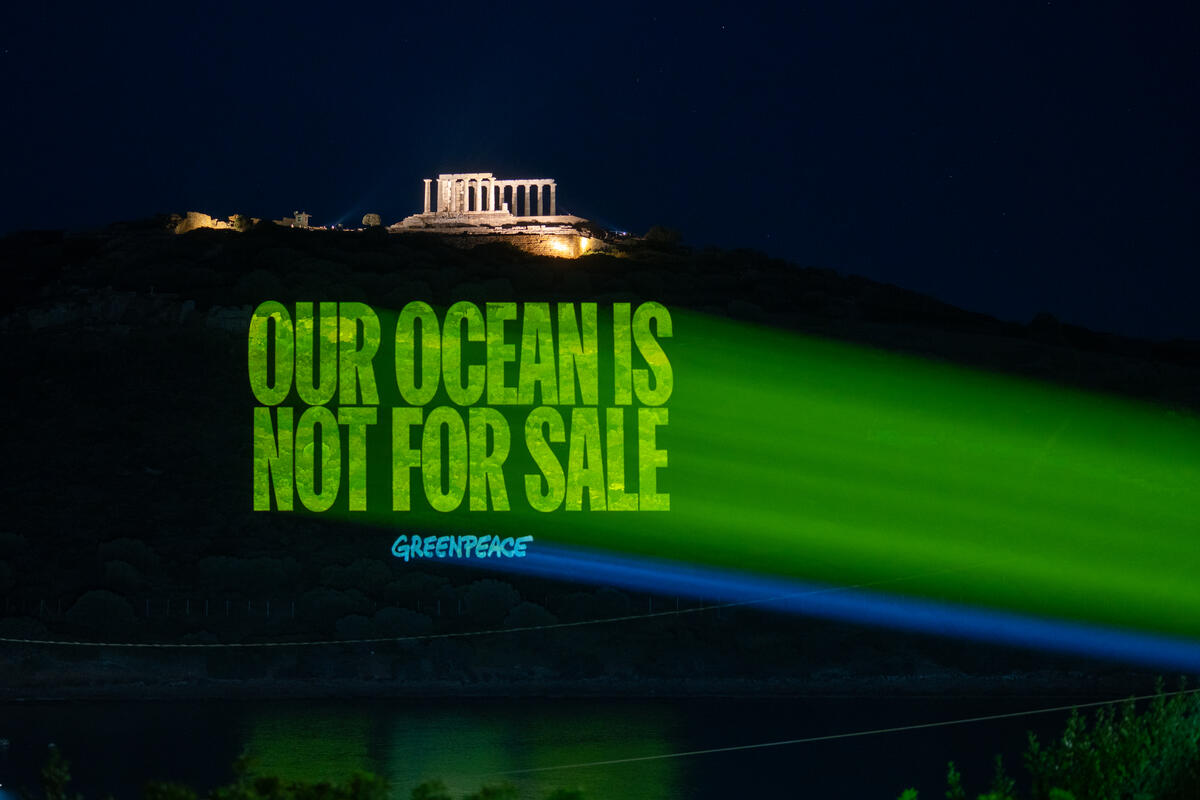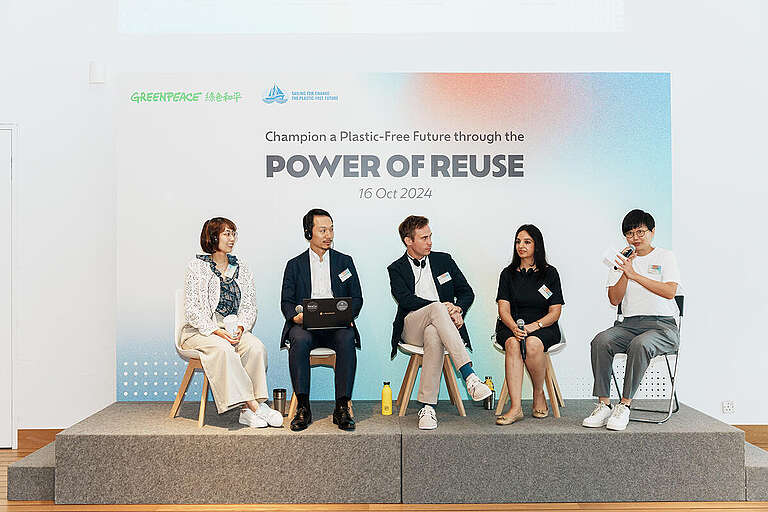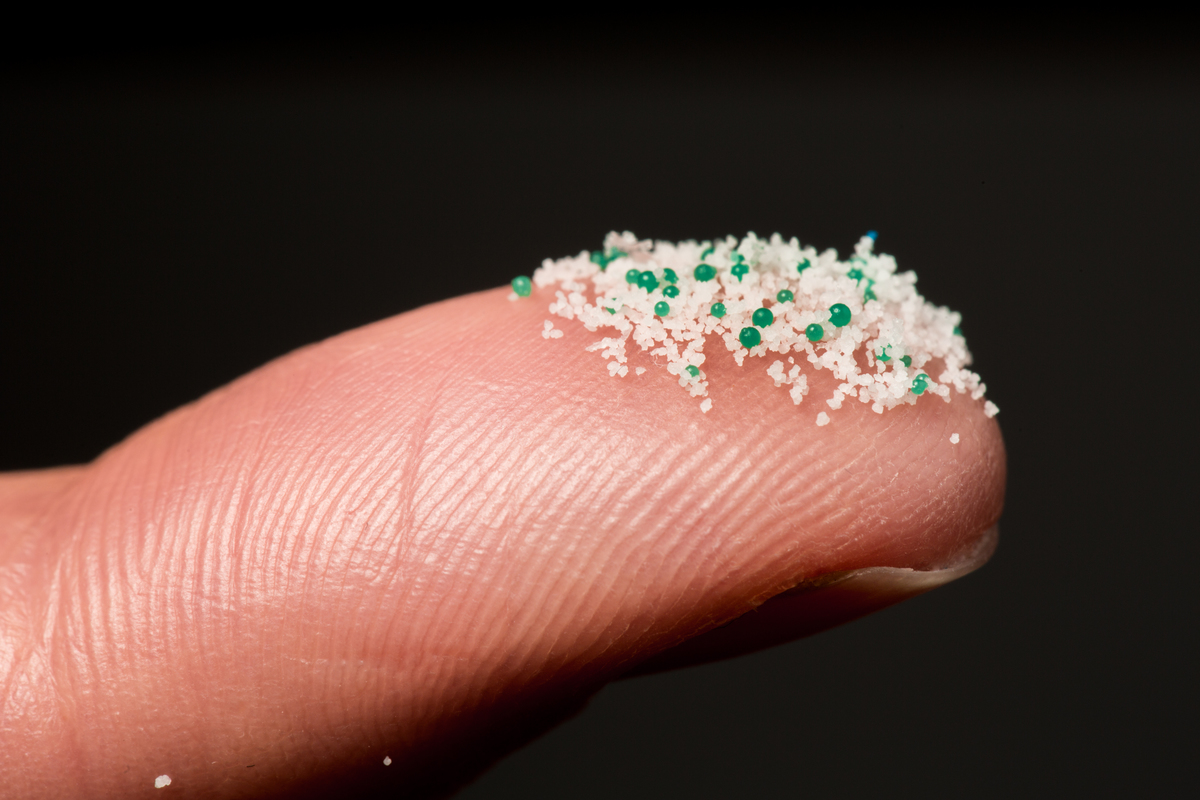Washington, DC – A report released by Greenpeace USA reveals how consumer goods companies like Coca-Cola, PepsiCo and Nestlé are driving the expansion of plastic production and threatening both the global climate and communities around the world. The report, The Climate Emergency Unpacked: How Consumer Goods Companies are Fueling Big Oil’s Plastic Expansion, exposes the business links between the world’s largest brands and fossil fuel companies, and the overall lack of transparency around emissions from plastic packaging.
“The same well-known brands that are driving the plastic pollution crisis are helping to fuel the climate crisis,” said Greenpeace USA Global Plastics Project Leader Graham Forbes. “Despite their best efforts to appear climate friendly, companies like Coca-Cola, PepsiCo and Nestlé are working alongside the fossil fuel industry to expand plastic production, which could lock the world into catastrophic emissions levels and a planet warmed beyond saving.”
While the plastics supply chain is largely opaque, the report identified relationships between the nine major consumer goods companies researched, and at least one major fossil fuel and/or petrochemical company. According to the report, Coca-Cola, PepsiCo, Nestlé, Mondelēz, Danone, Unilever, Colgate Palmolive, Procter & Gamble and Mars all buy packaging from manufacturers supplied with plastic resin or petrochemicals by well-known companies like ExxonMobil, Shell, Chevron Phillips, Ineos and Dow. Without transparency around these relationships, consumer goods companies are largely able to avoid accountability for environmental or human rights violations committed by the companies that supply plastic for their packaging.
The report states that consumer goods companies have also partnered with fossil fuel companies for decades to promote plastic recycling despite its failures. It elaborates on how these industries have worked together to oppose legislation that would restrict single-use packaging and have advocated for so-called “chemical or advanced recycling” projects. The report also finds that the fossil fuel and consumer goods industries often work through front groups that advocate for these false solutions, including the Alliance to End Plastic Waste, the Recycling Partnership and the American Chemistry Council.
“It is clear that many consumer goods companies want to hide their cosy relationships with fossil fuel and petrochemical companies, but this report reveals the extent to which they are working toward common goals that pollute the planet and harm communities worldwide,” said Forbes. “If these companies truly cared about the environment, they would end these alliances and move away from single-use plastics immediately.”
Without urgent action, plastic production could triple by 2050, according to industry estimates. According to estimates by the Center for International Environmental Law (CIEL), this projected growth would increase global emissions from the plastic life cycle by over 50% on 2019 levels by 2030, equivalent to nearly 300 coal-fired power plants. This is the same timeframe that the Intergovernmental Panel on Climate Change has warned human caused emissions must fall by nearly 50% to limit warming to 1.5℃. Greenpeace is calling on consumer goods companies to urgently move toward systems of reuse and package-free products. Companies must phase out all single-use plastics and be more transparent about their plastic footprint, including the climate footprint of their packaging. Companies are urged to support an ambitious global plastics treaty that addresses the entire lifecycle of plastic and emphasises reduction.
ENDS
Notes:
In a recent story aired by Channel 4 News in the UK, an Exxon lobbyist is recorded stating that “every aspect of plastics is a huge business,” noting that it is “going to grow.” The lobbyist also calls plastics “the future” at a time when communities around the world are fighting back against single-use plastic pollution and demanding reductions in its use. He goes on to state that the strategy is to say, “you can’t ban plastics, because here’s why,” comparing this to tactics used to undermine action on climate change.
Contact:
Capucine Dayen, GPUS Global Comms Lead, [email protected] +33647971819
Greenpeace International Press Desk (available 24 hours), [email protected], +31 (0)20 718 2470
Follow @greenpeacepress on Twitter for our latest international press releases.



